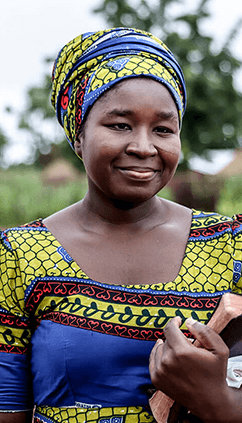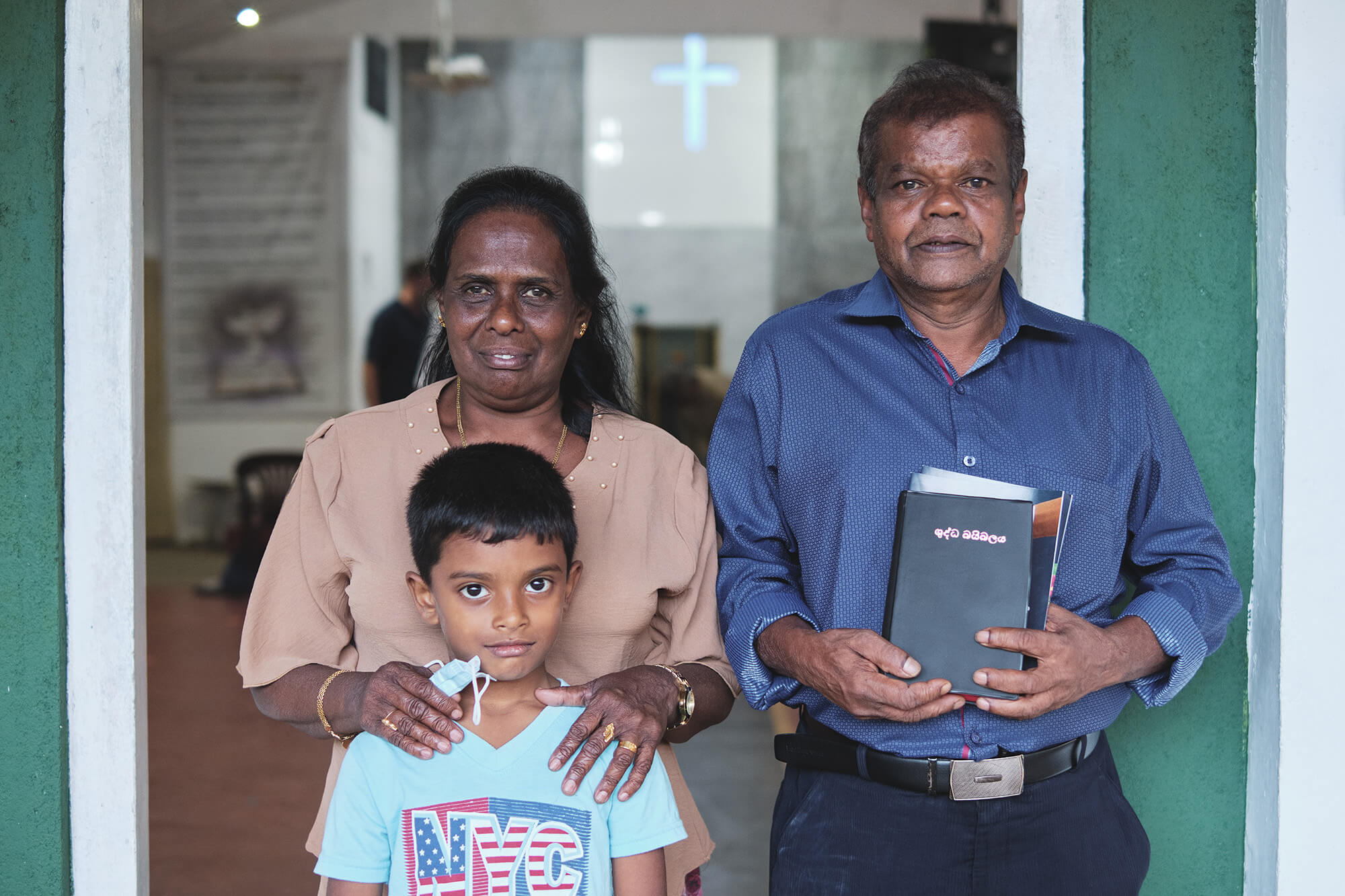
“When I was a Buddhist, I never had a happy mind. I would always feel an emptiness inside.” Hemalatha is a 65-year-old grandmother from central Sri Lanka. Like the majority of the country’s population, she was born and raised a Buddhist.
“I received Buddhist education during my entire schooling time,” she says. “We went to the temple, performed all the rituals, and listened to the bana, the preaching and teaching of the Buddhist monks. We tried to live according to what our holy books were saying.”
Mindfulness, meditation, peace – Buddhism has a strong appeal to many people in western countries. Hemalatha doesn’t have a good word to say about her native religion, though. “Buddhism is empty,” she states. “It has nothing to offer you when you experience sickness or sadness. It doesn’t give any peace.”
Children
Hemalatha became a Christian 30 years ago through the ministry of Pastor Kumar, who established a church in her town. At that time, in the early 90s, there were no Christians whatsoever in the area. Pastor Kumar started his work by inviting the local children to Bible classes. In the beginning, most parents were opposed to the Christian message. However, when they heard their children talk about the biblical lessons they learned, some parents gradually started showing interest. Hemalatha was one of the first to respond positively to Pastor Kumar’s invitation to come to church. When asked about the most significant change she experienced after coming to Christ, the amiable grandmother softly cries.
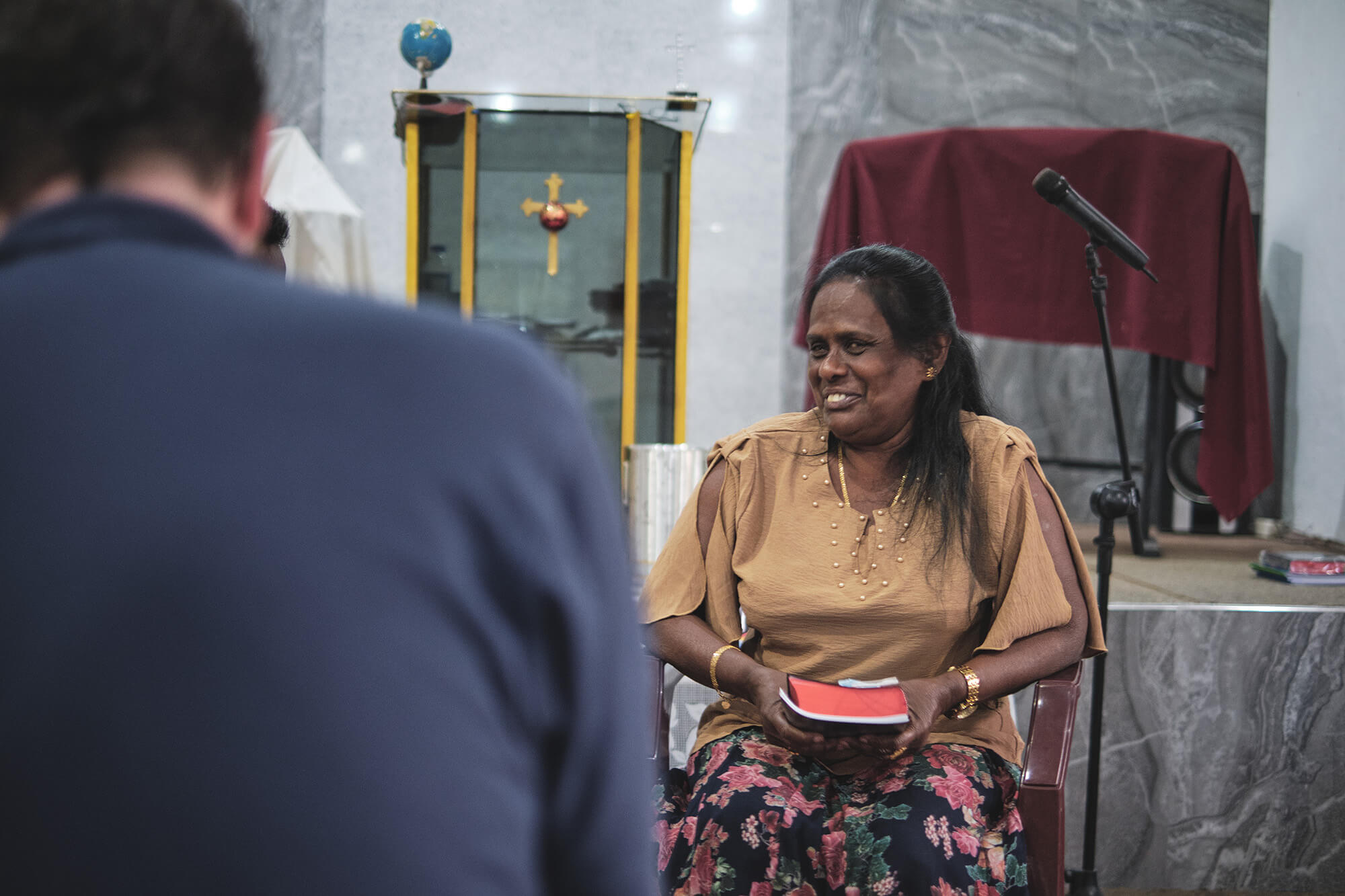
“We were living in deep poverty then,” she explains, her voice trembling with emotion. “We didn’t know where to go with our sorrow. Pastor Kumar taught us to pray to and trust Jesus Christ.” Hemalatha looks up, and her face brightens as she continues: “When we accepted Him, we found peace and happiness. God has blessed us, and our life has become better.”
Training of Trainers
Hemalatha and her husband have been faithfully attending the Sunday services ever since. We meet her in Pastor Kumar’s church, where she attends a Project Philip training of trainers. The building is beautifully located on top of a mountain, offering a spectacular view of the surrounding valleys and hills. The church looks like a simple bungalow with green-plastered walls. A small, cross-shaped window adorns the western façade, visible to parishioners as they climb the steep ramp to the sanctuary.
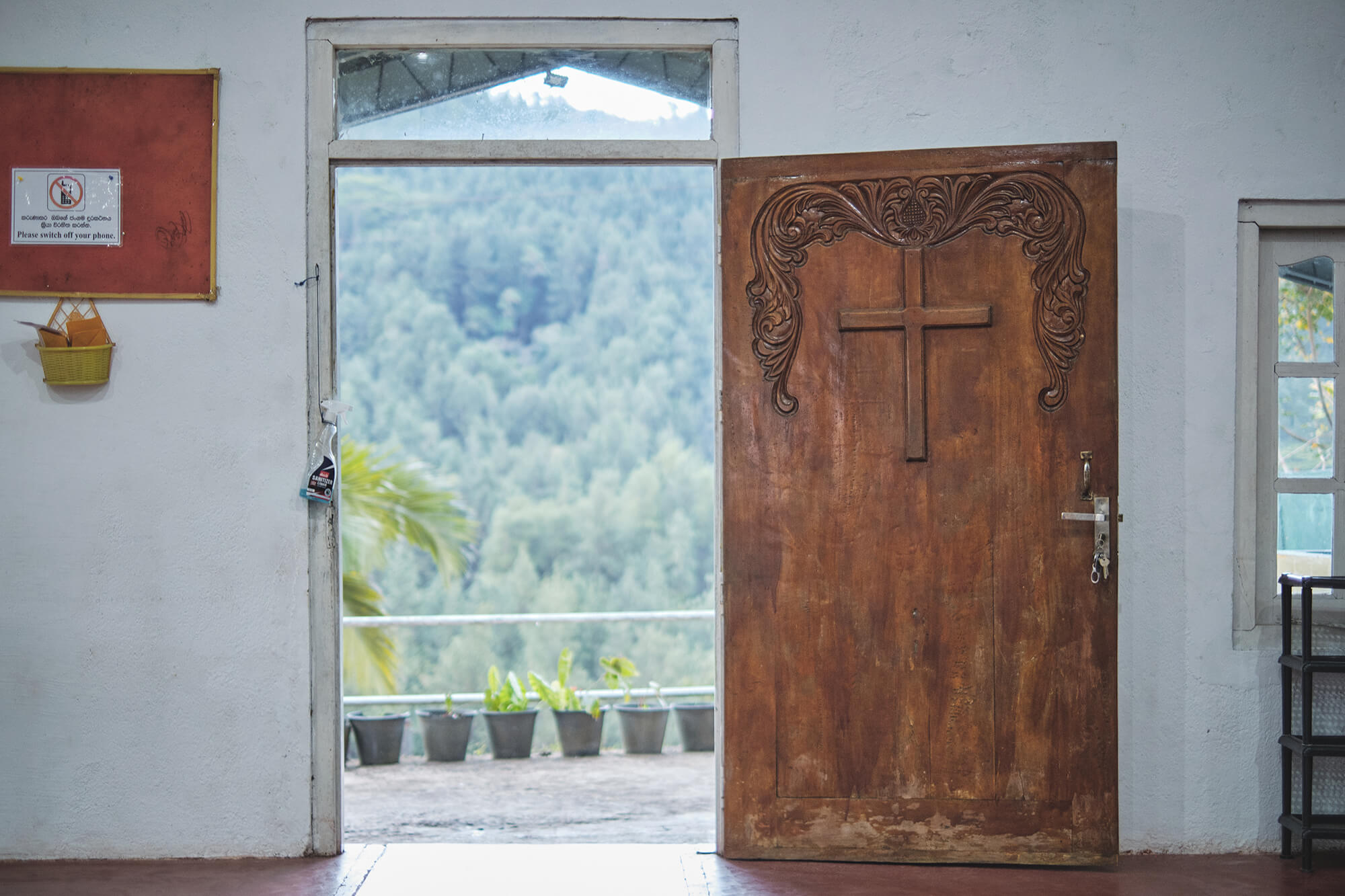
Outside, at the broad, beautifully carved door, a collection of slippers and shoes await the return of their owners, who have entered the building barefoot, heeding the instruction of a sign on the wall. Inside, 20 trainees are seated on plastic chairs placed five feet apart for social distancing because of COVID-19. Everyone wears a face mask, although some pull it under their chins upon taking their seats. The participants remove the protective garment only to read aloud a passage from the Bible or a study booklet. There’s an elderly grey-haired lady who sinks back comfortably in her chair. She seems to be at perfect ease; the atmosphere is relaxed indeed.
Bi-lingual
The training is bi-lingual: Pastor Kumar teaches in Tamil, while Pastor Anton, the local Bible League coordinator, uses Sinhalese. An assortment of different Project Philip Bible study booklets and black-covered Bibles in both languages are piled on a table behind the two men. Despite the humidity and heat, only moderately tempered by some fans, the attendees listen with deep concentration. A young man rises to read a paragraph from his Tamil booklet. After him, Hemalatha reads aloud from a large, old, worn Bible while a little boy dozes off in the chair next to her. When asked about her family, she replies:
“I’m married to Shanthalal; he’s here also.” She points to an elderly man in a blue shirt standing at the church door. “Shanthalal is a pensioned railway official. We have three children: two sons and one daughter. All three are married with children. My oldest son is a tuk-tuk* driver and has one daughter. My daughter has three daughters, and my younger son, an army officer, has two boys. One of them is here with me. All our children are worshipping Jesus Christ with us. They have a blessed life.”
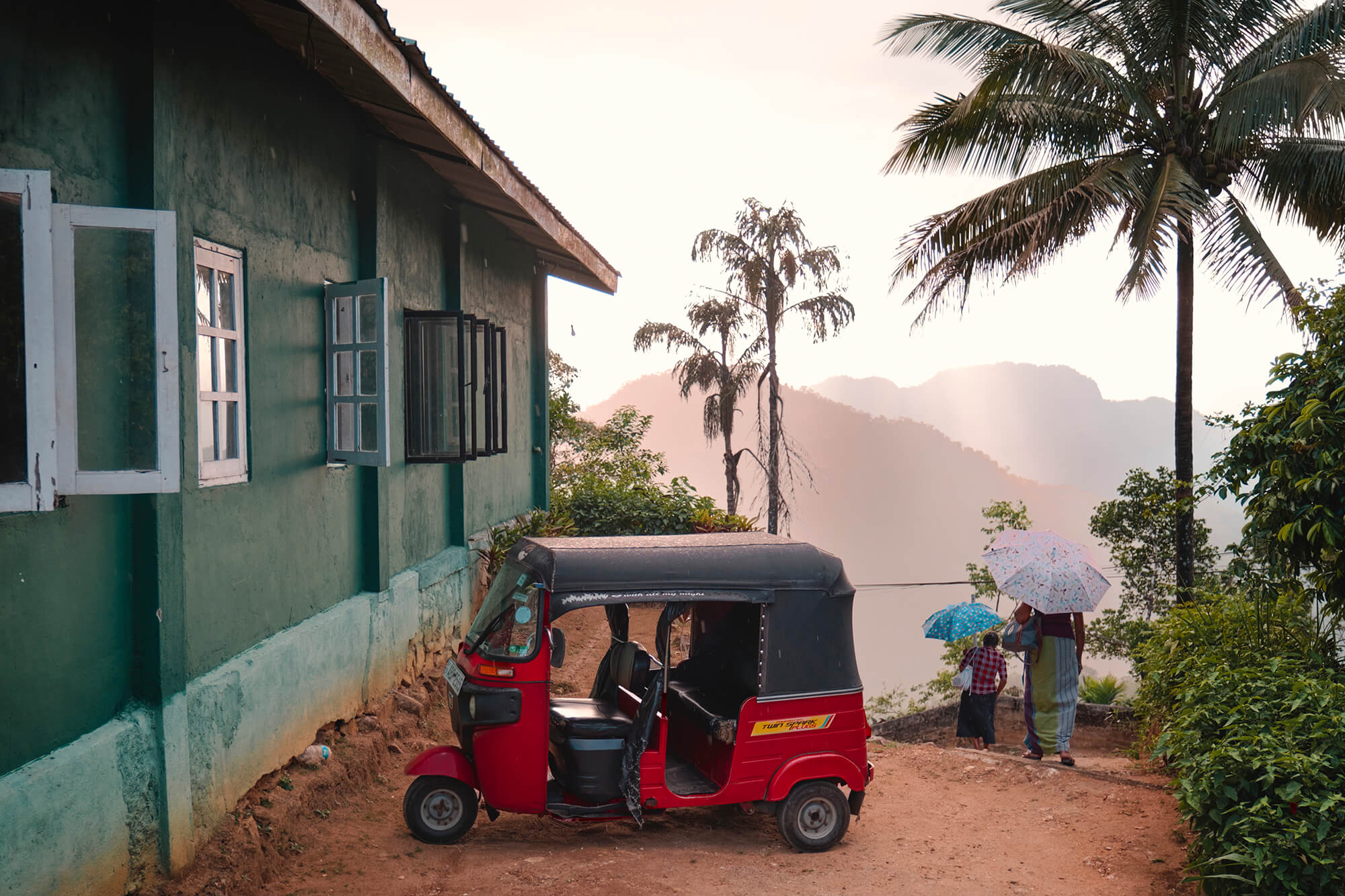
*A tuk-tuk or rickshaw is a roofed, three-wheeled motorcycle, often used in Sri Lanka as a small taxi.
A blessed life
Having a blessed life in Sri Lanka isn’t the norm. The country’s already weak economy suffered heavy blows from the pandemic. In her community, the production of tea is a significant source of income. We can see plantations on the slopes of the surrounding hills when we look out the church windows. A stunning sight, but behind it hides a world of sorrow.
Prices have gone up dramatically during the pandemic, but wages haven’t. As a result, plantation workers are notably underpaid. Instead of seeking to improve their employees’ financial situation, the plantation owners make the profit of their tea business disappear into their own deep pockets. Sri Lanka’s government is either unwilling or unable to do much to change this situation. How does Hemalatha make ends meet?
“Indeed, our country has many problems,” she nods. “But we are living in Christ, and sometimes, we don’t understand how we get through the difficulties. We are living by God’s grace; He supplies our needs,” she says, her eyes shining.
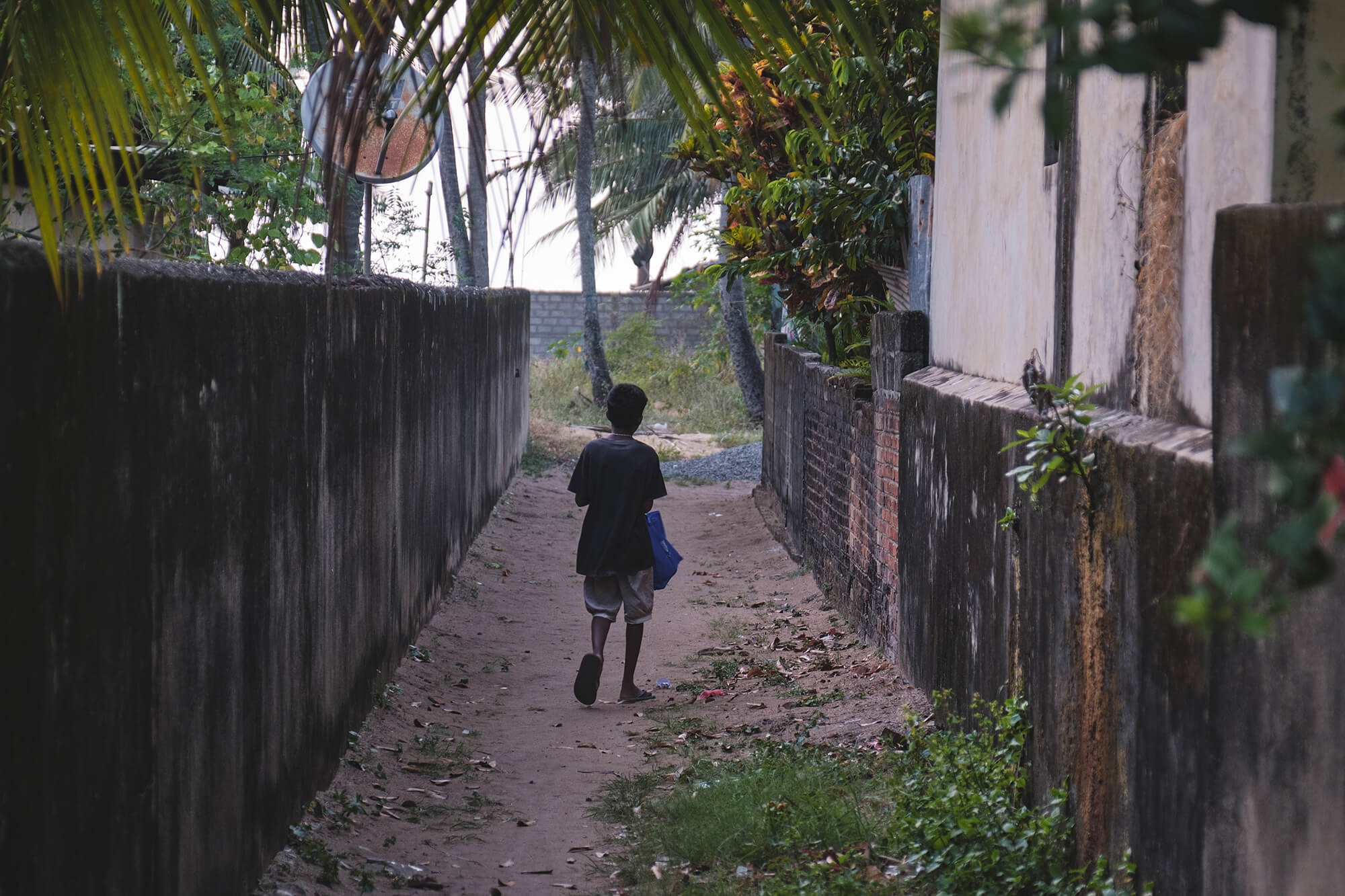
“When I wake up, I pray and read the Bible,” she continues. “After that, I have breakfast and spend time with my grandchildren. We sing hymns, and I read the Word of God for them. That’s how I have a happy life.” And with a cheerful laugh, Hemalatha adds, “My daughters-in-law are cooking, and I am eating.”
Strong in the Word
At the end of the training, all participants receive a set of Project Philip Bible study materials and Bibles in their language of choice. How is Hemalatha planning to use them?
“My dream is to pass on to my neighbors what I have learned and received,” she gently responds, and browsing through the booklet on her lap, she adds, “We can take these books and the Bibles and use them to reach out to others. It’s a blessing to have this kind of resource. I joined this training because I want to be strong in and through the Word of God. It will help me do personal evangelism and explain the Gospel to the people I meet.”
Hemalatha lives about four miles away from Pastor Kumar’s church in a village dominated by Buddhism. Pastor Kumar pointed out that believers who come to his church are often being threatened by other people in the villages. In the close vicinity of the church are a Buddhist and a Hindu temple. Despite that, Hemalatha attests she doesn’t experience opposition.
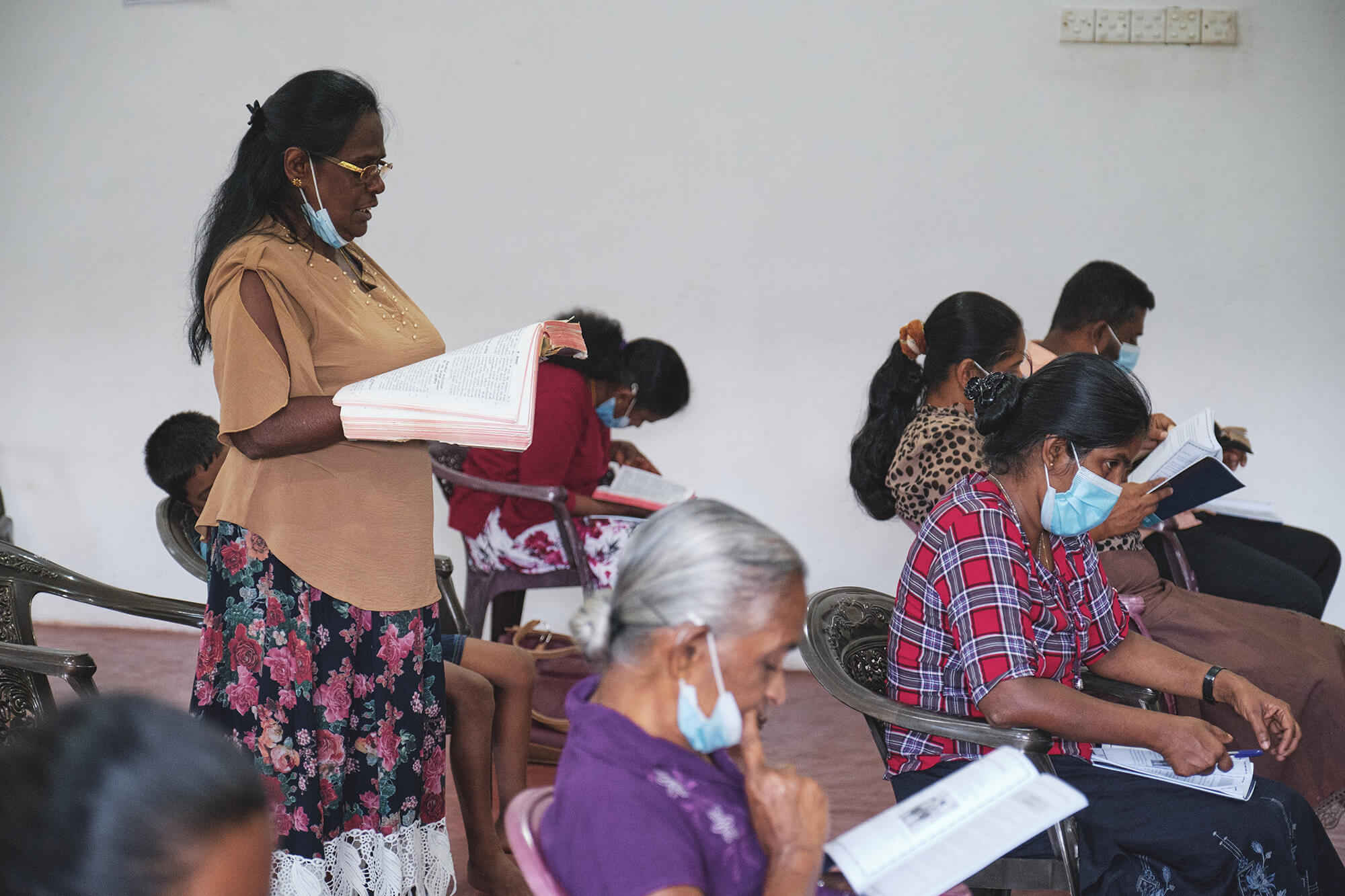
“When I’m sharing the Gospel, nobody speaks against me,” she says. “It is going smoothly: many people have accepted Jesus Christ as their personal Savior while we were preaching the Gospel. The only challenge I have is the language. Most Hindus only speak Tamil, while I only speak Sinhala.”
Hemalatha has a particular burden for women’s ministry. Together with Pastor Kumar’s wife, she leads women’s groups and conducts house visits. “When someone is sick, we go there and pray,” she explains. “We also gather weekly with a group of ladies, where we talk about our family life, our needs and issues, and bring these to the Lord in prayer. We also try to support the women materially where we can. Most of them have Buddhist backgrounds, while some were Hindus. But now, they all have become Christians.”
Built on a Rock
When we ask Hemalatha which lesson from the Project Philip Bible study materials stood out to her, she answers quickly:
“That’s Jesus’ parable about the two houses. One is built on the rock, the other one on the sand. This parable contains fundamental lessons. Only in Christ can we stand firm in faith. When we accept Jesus Christ, pray to Him, and read the Bible, we grow in God’s Word and live fruitful lives.”
Hemalatha uses the parable to teach people that if they build their lives on the teachings of Buddhism and Hinduism, they will never find lasting assurance. At the end of the day, their fate will depend on their own deeds. In Christ, however, they will find a solid foundation for which they don’t have to do anything but believe.
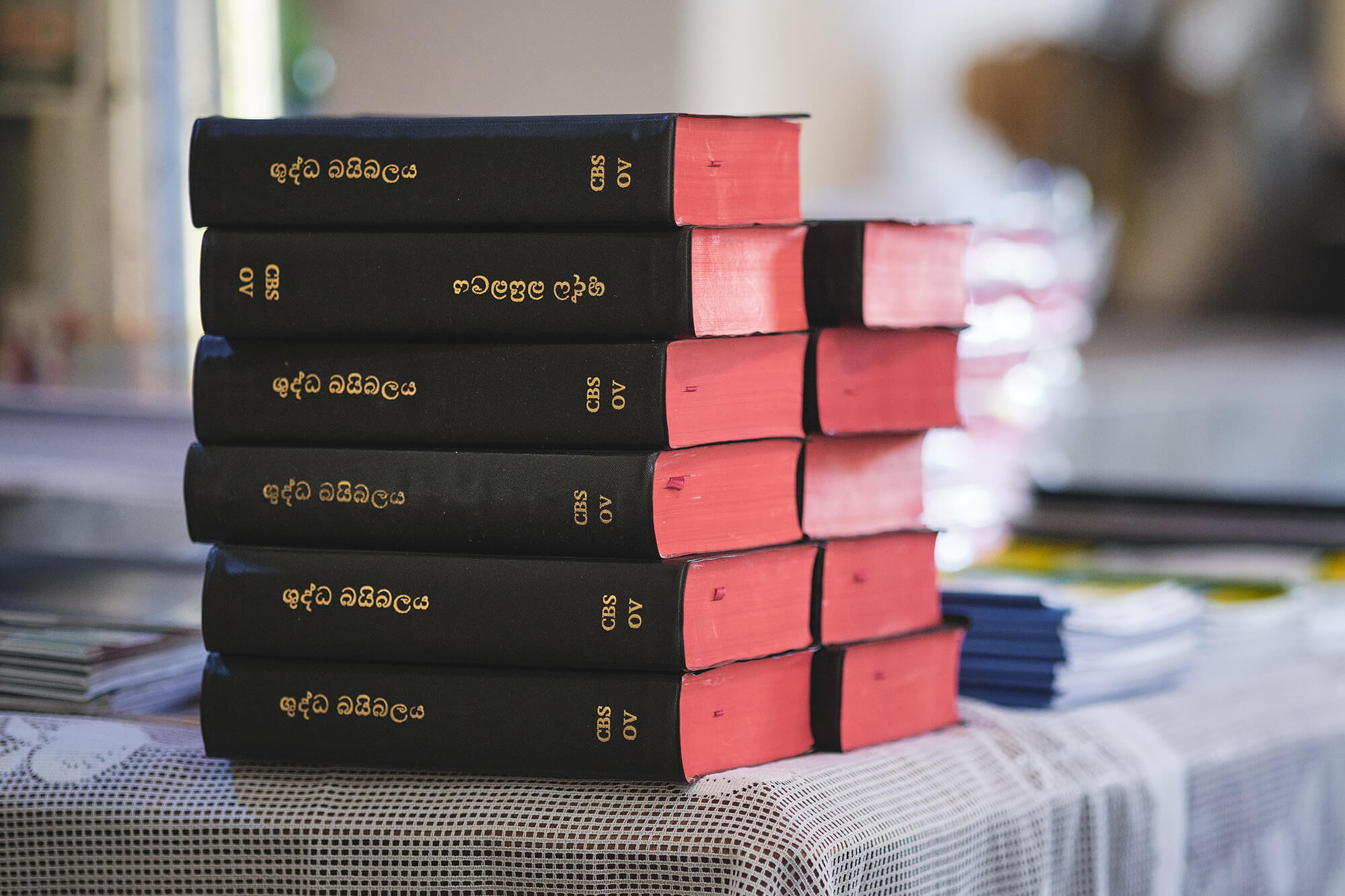
Like the good house in the parable from Matthew 7, Pastor Kumar’s church is built on a rock. Rains and mudslides won’t make it collapse. But most significantly, the church stands on the Word of God, and Bible League’s ministry helps the congregants to take firm root in the Scripture. Hemalatha beams when she thinks about Bible League’s support.
“Your Bible study materials are so easy to understand! We are using them with all the people in our church, and everyone has received a Bible through Project Philip. However, we are always welcoming new people to our church, and they need these materials, too. Some people can’t buy a Bible because it’s expensive. Before Bible League came along, we used to collect money ourselves to buy copies for them. But now, with your program, giving Bibles has become so easy. Thanks a lot!”
Story written by Anton de Vreugd, Communications Specialist located in The Netherlands, after a field visit to Sri Lanka.




